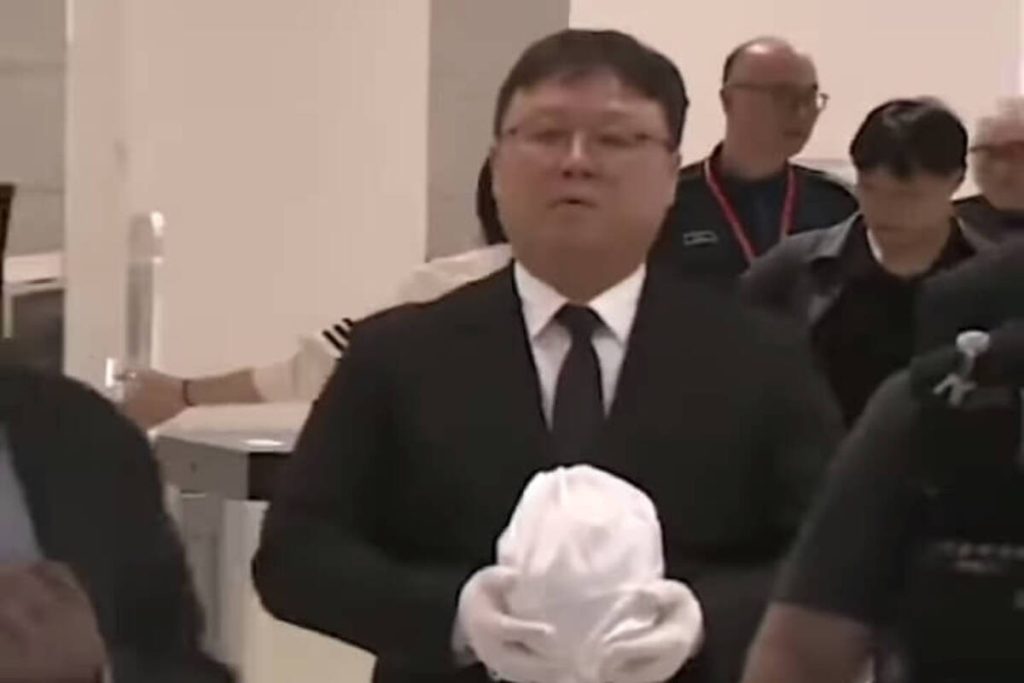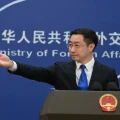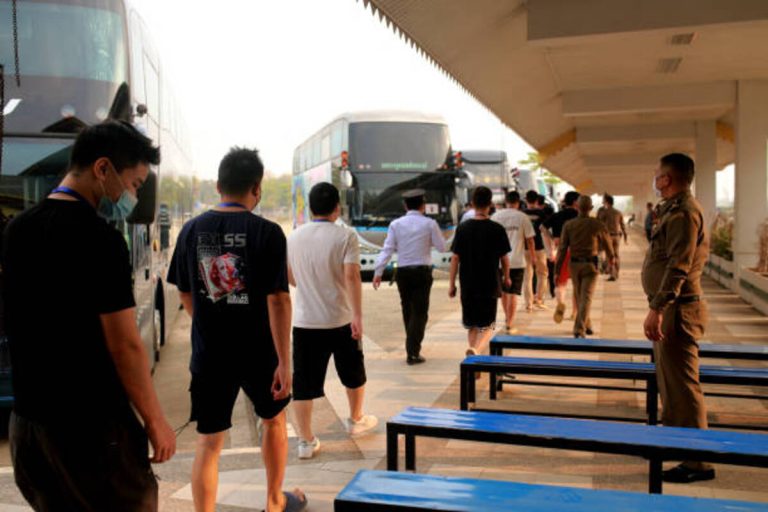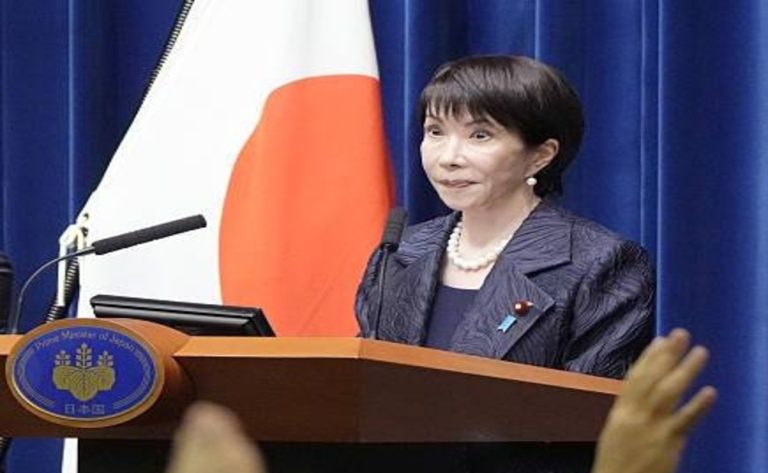
Cambodian police secure crime scene in Kampot Province after discovering South Korean student’s tortured body.
Seoul, Oct 25 (Epicstorian News) — South Korea has urged Cambodian authorities to launch an urgent crackdown on transnational fraud networks following the death of a 22-year-old South Korean student allegedly tortured inside a scam compound in southern Cambodia.
The victim, identified by officials in Seoul as Park Min-ho, was found in a pickup truck in Kampot Province in late August with visible signs of torture, according to Cambodian police investigators who described the case as one of the “most brutal manifestations” of the expanding Cambodia scams crisis affecting thousands across the region.
Officials from South Korea’s Foreign Ministry said Park had travelled to Cambodia earlier this year after responding to an online recruitment offer that turned out to be part of a trafficking operation forcing victims to commit internet fraud.
Seoul’s vice foreign minister, Kim Jina, who led a diplomatic mission to Phnom Penh this week, called the incident “a horrifying violation of human rights that demands immediate accountability.”
“We are deeply angered by this tragedy and have urged Cambodian authorities to deliver justice swiftly,” Kim said, stressing that both nations must “eradicate the criminal networks exploiting vulnerable youths under the guise of employment.”
Scam Compounds Emerge as Regional Crisis
Authorities in Phnom Penh have acknowledged the rising challenge of Cambodia scams and pledged to cooperate closely with foreign law enforcement to locate missing foreign workers and prosecute traffickers.
Prime Minister Hun Manet described Park’s killing as “regrettable” and said police had arrested three Chinese nationals accused of involvement in murder and human trafficking. Two other suspects reportedly fled across the border into Vietnam.
Police in Kampot confirmed that Park’s body bore severe injuries consistent with torture. Local officials said the victim may have been assaulted after resisting participation in fraudulent online investment schemes operated from within the compound.
According to South Korean diplomats, more than 330 of their citizens have been rescued from scam centres in Cambodia since January, many after being lured with promises of call-centre or tech-support jobs.
“This is not an isolated crime,” Kim Jina said. “It reflects an entrenched transnational network preying on economic desperation.”
Families Demand Answers as Cambodia Scams Spread
The student’s death has prompted a wave of protests in Seoul, where families of missing citizens urged the government to strengthen repatriation missions and impose wider travel restrictions on regions linked to cyber-fraud rings.
Officials in Seoul confirmed the issuance of a “black-level” travel warning—the highest category—for scam-prone areas including Bokor Mountain, Poipet, and Bavet. The measure effectively bans South Koreans from entering these zones.
South Korea’s Justice Ministry said an interagency task force would be established to coordinate with Cambodian counterparts and share biometric data, financial intelligence, and victim identification lists.
Human-rights advocates said the Cambodia scams phenomenon extends beyond Cambodia, implicating crime networks stretching across Laos, Myanmar, and the Philippines, where young people from multiple nations are coerced into digital fraud.
“The regional scope of exploitation is alarming,” said a rights researcher in Bangkok. “Victims are held in guarded compounds, stripped of passports, and forced to scam strangers online for profit.”
South Korean authorities said they are cooperating with Interpol and ASEAN’s anti-trafficking task force to disrupt these networks through intelligence sharing and targeted financial monitoring.
Victim’s Journey Highlights Recruitment Tactics
Investigators revealed that Park Min-ho, a university student from Daejeon, had applied for what he believed was a legitimate overseas data-entry job offering a salary three times higher than domestic rates.
His family said he maintained regular contact until early July, when his messages abruptly stopped. They filed a missing-person report with South Korean police, who coordinated with Cambodia’s interior ministry to locate him.
By late August, Cambodian police discovered a body matching Park’s description, later confirmed through DNA testing. His remains were cremated and returned to Seoul earlier this week.
Friends and relatives held a memorial service in Daejeon, calling for stronger penalties against human-trafficking syndicates and stricter oversight of international job platforms.
“He was trying to build a better future,” a family representative said. “Instead, he was trapped and killed by deceit.”
Diplomatic Tensions Rise Over Cambodia Scams Crackdown
South Korea’s foreign ministry summoned Cambodia’s ambassador earlier this month to demand “visible action” against scam operators, while Cambodian officials urged patience as investigations continue.
Phnom Penh authorities said multiple operations have been conducted this year in Kampot, Sihanoukville, and Bavet, freeing more than 1,000 victims, including citizens from China, Vietnam, Malaysia, and South Korea.
The Cambodian interior ministry confirmed that police raids in Sihanoukville uncovered dozens of computer terminals, financial ledgers, and fake identity documents used in large-scale crypto-investment scams.
According to Cambodian prosecutors, traffickers often move operations from one country to another to evade law enforcement, exploiting weak regional coordination.
Seoul’s embassy has urged citizens to verify all overseas job offers through government-approved channels and avoid unregistered recruitment websites.
Trafficking and Technology Intersect in Southeast Asia
Experts say the Cambodia scams trade has evolved into a hybrid of online fraud and human trafficking, where victims are both perpetrators and prisoners.
Cybersecurity analysts noted that scammers deploy sophisticated digital tools to launder proceeds through cryptocurrency exchanges, complicating cross-border tracing efforts.
Regional police forces said they are developing AI-based systems to identify suspicious job postings and track communications between known syndicate recruiters.
South Korean legislators are also drafting new laws enabling prosecutors to charge nationals involved in overseas fraud operations under domestic trafficking statutes.
“We cannot ignore crimes committed abroad when our citizens are both victims and unwilling participants,” a parliamentary committee member said during a hearing in Seoul.
Global Community Eyes Coordinated Response
Diplomats from several countries, including Japan and the Philippines, have expressed concern that unchecked Cambodia scams networks could undermine regional stability and public trust in digital commerce.
International organisations are calling for enhanced cooperation under the UN Convention against Transnational Organized Crime and ASEAN’s trafficking framework.
Cambodia’s national police chief said the government is reviewing agreements with neighbouring nations to enable faster extradition of foreign suspects.
Meanwhile, South Korean prosecutors are seeking to identify local recruiters linked to overseas crime syndicates that deceived students into travelling abroad.
Observers say such bilateral pressure may reshape Southeast Asia’s approach to cybercrime enforcement in the coming years.
Calls Grow for Regulation of Online Job Advertising
Following Park’s death, South Korean lawmakers proposed mandatory verification for all international job postings appearing on domestic digital platforms.
The Labour Ministry said it plans to introduce legislation requiring agencies to disclose employment sponsors, contact details, and proof of legal operation before ads go live.
Digital-rights groups argue that stronger online regulation could prevent traffickers from exploiting youth unemployment to lure workers into the Cambodia scams network.
According to South Korea’s Human Trafficking Response Centre, job scams have risen 58 percent since 2022, with young graduates most at risk.
Authorities in Seoul said that more than 80 citizens remain unaccounted for in Cambodia and neighbouring countries believed to host similar fraud compounds.
Forensic Findings and Next Steps
Preliminary autopsy results confirmed Park suffered multiple blunt-force injuries, internal bleeding, and electrical burns, suggesting prolonged torture before death.
South Korean forensic specialists working alongside Cambodian investigators said more evidence was needed to determine whether he attempted to escape or refused participation in scams.
The two nations have agreed to expand their joint investigative unit, allowing direct data exchange between prosecutors and police departments.
Officials said a bilateral anti-trafficking agreement will be signed in the coming week to formalise cooperation mechanisms and victim-repatriation procedures.
“We owe it to him and to others still trapped abroad to see justice done,” Kim Jina said during a press briefing in Phnom Penh.
Regional Cooperation and Long-Term Prevention
The ASEAN Intergovernmental Commission on Human Rights has called for a unified regional database to track trafficking and scam-related arrests.
Related: ‘Sex espionage’: China and Russia Use Honeypot Tactics to Breach Silicon Valley Tech Firms
Authorities in Thailand and Laos have begun joint patrols along border crossings known for smuggling victims across the Mekong River.
Observers say such coordination may deter criminal syndicates that rely on porous borders and limited intelligence sharing between governments.
South Korea’s foreign ministry emphasised that the Cambodia scams crisis requires a “sustained and united response beyond national boundaries.”
“This tragedy must serve as a turning point,” Kim Jina said. “No young person should ever lose their life to deception again.”




